- The Problem with Traditional SEO Audits
- 1. Static Reports, Dynamic Problems
- 2. Fragmented Tools, Manual Follow-up
- 3. Reactive Not Proactive
- How AI Agents Transform SEO Auditing
- 1. Autonomous Analysis
- 2. Actionable Intelligence
- 3. Continuous Learning
- AI SEO Audit Use Cases
- Integrating AI SEO Audits into the Enterprise Workflow
- GoInsight.AI: Automating SEO Audits with Agentic Workflows
- Conclusion
- FAQs
Every SEO team knows how frustrating it is to spend hours on manual checks, spreadsheet tracking, and chasing down technical errors. In fact, 32.6% of SEO professionals say audits and fixes take up the most time. As websites change and search algorithms evolve, it feels like a never-ending race to keep everything optimized.
Now, a new generation of AI SEO audit agents is changing that. These smart systems don't just analyze; they take action. They run automatic checks, prioritize issues, and trigger updates. This makes SEO audits a tool for growth.
The Problem with Traditional SEO Audits
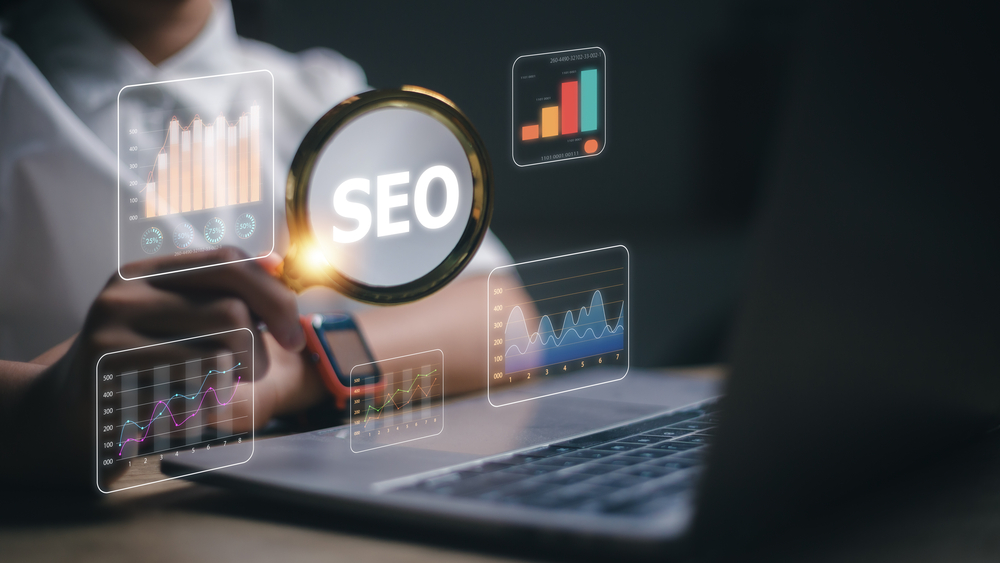
Traditional SEO audit is fundamentally reactive and disconnected from the reality of the modern, dynamic websites. This approach diagnoses website problems only after they’ve already impacted performance, rather than spotting and fixing them in real time.
1. Static Reports, Dynamic Problems
A typical audit produces a snapshot or a static report for a dynamic website. It lists down broken links, speed issues, and content gaps as of the day the crawler ran, providing a single point-in-time analysis.
But websites evolve rapidly. Architectures change, new content is added, CMS migration takes place, broken links pop up, and search signals shift. Manual audit can’t keep pace with these changes, leaving SEO teams to act on stale data.
2. Fragmented Tools, Manual Follow-up
Second, there’s a clear misalignment between insight and action, with the analysis and the required action existing in separate silos. An SEO specialist uses one software for crawling, another for keyword gaps, a third for backlink analysis, and a fourth for performance tracking.
Each tool produces its own output, requiring the analysts to stitch together data coming from disparate sources and manually implement fixes. This process is fragmented, slow, and prone to oversight.
3. Reactive Not Proactive
Conventional audits are reactive checks instead of being proactive. They flag symptoms but don’t immediately implement solutions, leaving known problems to continue affecting search performance for weeks or months. This creates a never-ending cycle of identification and manual intervention that eats into your resources. Plus, the traditional audit lacks the capacity to predict future problems or to autonomously optimize for emerging opportunities.
How AI Agents Transform SEO Auditing
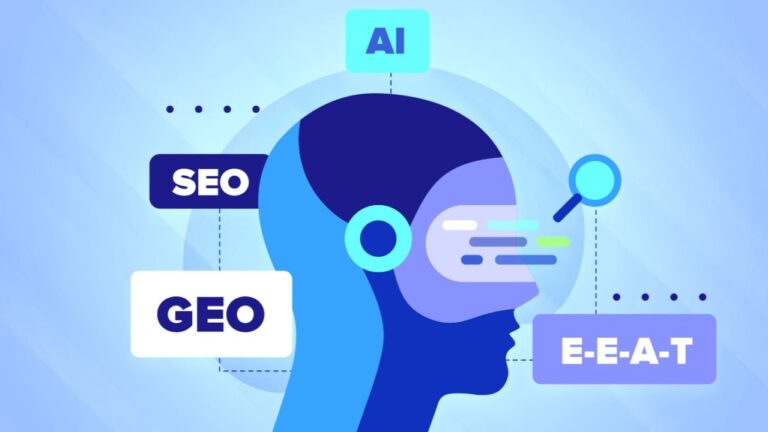
Instead of juggling multiple tools and software, SEO AI agent uses a single, autonomous system to manage the entire process. As such, it’s no surprise that 14.8% of respondents said they consider AI agents and automation to be the most critical SEO tools available.
1. Autonomous Analysis
The core of this transformation is autonomous analysis. An AI SEO audit agent doesn’t wait for a human to run a crawl. Instead, it’s always at work, automatically and continuously scanning page structures, assessing content quality, checking schema markup, and monitoring critical technical metrics.
The SEO audit AI agent understands the site's architecture and its relationship to search engine guidelines without human prompting. Plus, it constantly compares current state against historical baselines, spotting anomalies earlier than periodic scans.
2. Actionable Intelligence
Beyond reporting issues, AI SEO audits use actionable intelligence to automatically generate repair suggestions and even execute fixes. The AI agent can report a missing meta description or an issue with content on a specific webpage. It can then generate a new, optimized meta description or suggest content rewrites with clear edit instructions and even autonomously push them to your CMS.
3. Continuous Learning
Unlike traditional SEO, agentic AI has a continuous learning capability. AI agents improve as they work and receive feedback. Every action they’ve taken and every result they’ve achieved or measured automatically feeds back into the system, helping them refine their strategies and future performance.
AI SEO Audit Use Cases
The practical application of AI SEO audit spans the entire spectrum of search optimization.
Real-Time Website Health Monitoring
The AI SEO audit agent acts as a perpetual sentinel, monitoring crucial factors like uptime, rendering, Core Web Vitals, and indexability in real time. This constant vigilance prevents minor issues from escalating into major ranking penalties.
For example, if a server error spikes or a critical page drops from the index, the AI agent will send you an alert and even suggest a fix before organic traffic tumbles.
Intelligent Technical SEO Analysis
Enterprises can even use AI for technical SEO audits. AI agents conduct non-stop, intelligent technical SEO analysis without requiring a command from a human. The best part is that it can handle large volumes of pages and logs.
For example, the AI SEO audit tool can correlate server log data with Google Search Console data to understand how search engine bots interact with the site. It can also identify crawl budget inefficiencies, diagnose JavaScript rendering issues, and validate structured data markup at scale.
Content Optimization & Gap Analysis
SEO audit AI agents can benchmark pages against top-ranking competitors, measure topical coverage, identify semantically missing subtopics, and recommend optimal content length. They can also create outlines, optimize headings and internal links, and score content for topical authority.
Keyword & Ranking Trend Intelligence
The AI SEO audit tool continuously monitors website ranking fluctuations and correlates any shifts with changes like on-page or algorithm updates, or broader market trends like competitor activities. The agent doesn’t stop there. It goes on to identify nascent keyword opportunities and trends before they become competitive.
Predictive SEO & Continuous Optimization
At this stage, the agent transitions from a diagnostic tool to a strategic partner. Using its agentic intelligence, it identifies pages that are likely to decline or gain from specific changes. AI SEO audit agents perform continuous optimization though autonomous activities like proposing iterative improvements, performing A/B tests, and forecasting outcomes.
Integrating AI SEO Audits into the Enterprise Workflow
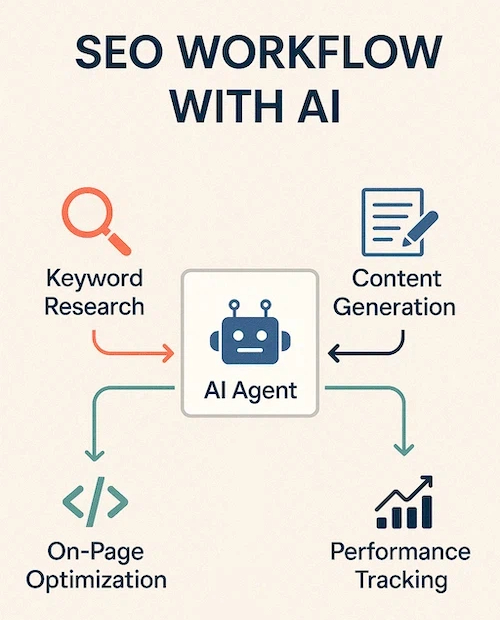
AI SEO audit systems need to integrate seamlessly with your broader enterprise ecosystem in order to act autonomously. This level of integration is also vital for staying competitive. In fact, 20.5% of businesses already plan to invest in SEO workflow automation.
So, how to incorporate AI SEO audits into enterprise workflow? Let’s have a look.
1. From Isolated Tasks to Connected Systems
The first step of using AI for SEO audit is to move from isolated tasks to connected systems. This starts with mapping your current audit inputs and outputs, besides identifying where manual handoffs happen. Then replace brittle workflows with API-driven connections so the audit agent can read crawl data, ranking signals, and issue trackers.
At this stage, the AI agent becomes the central nervous system for SEO, integrating with the CMS, CRM, ticketing system, marketing calendar, and analytics platforms.
2. Automation Across the Content Lifecycle
The next step is to implement automation at every step of the content lifecycle, from planning and SEO validation to execution and publishing. This way, the agent can automatically identify content gaps and send actionable alerts together with content suggestions, outlines, target keywords, and success metrics.
3. Ecosystem Integration
It is also important to integrate the AI SEO audit agent with your existing ecosystem, such as Google Search Console, GA4, and CRM systems. Why? Because the agent doesn’t work in a vacuum. It needs context and data, which are vital for pushing notifications into existing channels.
4. Continuous Optimization Loop
AI agents need a self-optimizing cycle where feedback and outcomes of previous tasks help them learn and improve future recommendations and actions. For this reason, it is a good idea to establish KPIs for suggested changes and feed outcomes back into the AI system.
5. Organizational Impact
The organizational impact of an AI SEO audit tool is profound. It frees SEO professionals from repetitive monitoring and diagnostic tasks and manual fixes, allowing them to reclaim their time to focus on high-level strategy, creative content planning, and advanced technical architecture. Even marketing, content, product, and customer experience teams benefit from this integration.
GoInsight.AI: Automating SEO Audits with Agentic Workflows
GoInsight.AI brings the concept of AI-powered SEO audits to life, transforming them from theoretical possibilities into practical, scalable workflows. Designed for enterprises, GoInsight unifies AI agents, data sources, and tools into a single automation layer that turns insights into continuous optimization.
Built as an enterprise-grade AI automation platform, GoInsight empowers teams to design, deploy, and manage intelligent workflows for SEO and beyond.
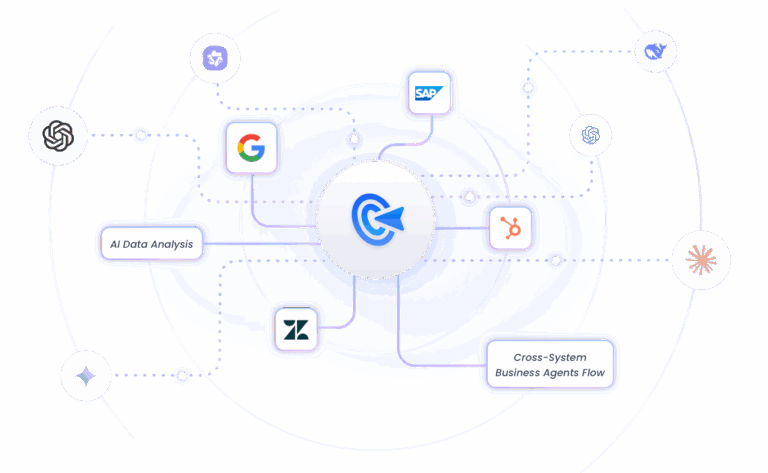
Core capabilities include:
- A visual workflow engine that lets users orchestrate entire SEO processes through drag-and-drop agent configuration.
- Multi-agent collaboration that connects crawlers, analyzers, and strategy agents for seamless execution.
- Centralized security and governance to ensure reliability and compliance at enterprise scale.
The platform also offers a ready-to-use SEO Audit workflow template that performs a full-spectrum site analysis. It inspects technical elements like HTML structure and page speed, categorizes findings by severity, and audits on-page content for quality, keyword relevance, and readability. The result is a concise, actionable report that helps teams improve both visibility and engagement without manual intervention.
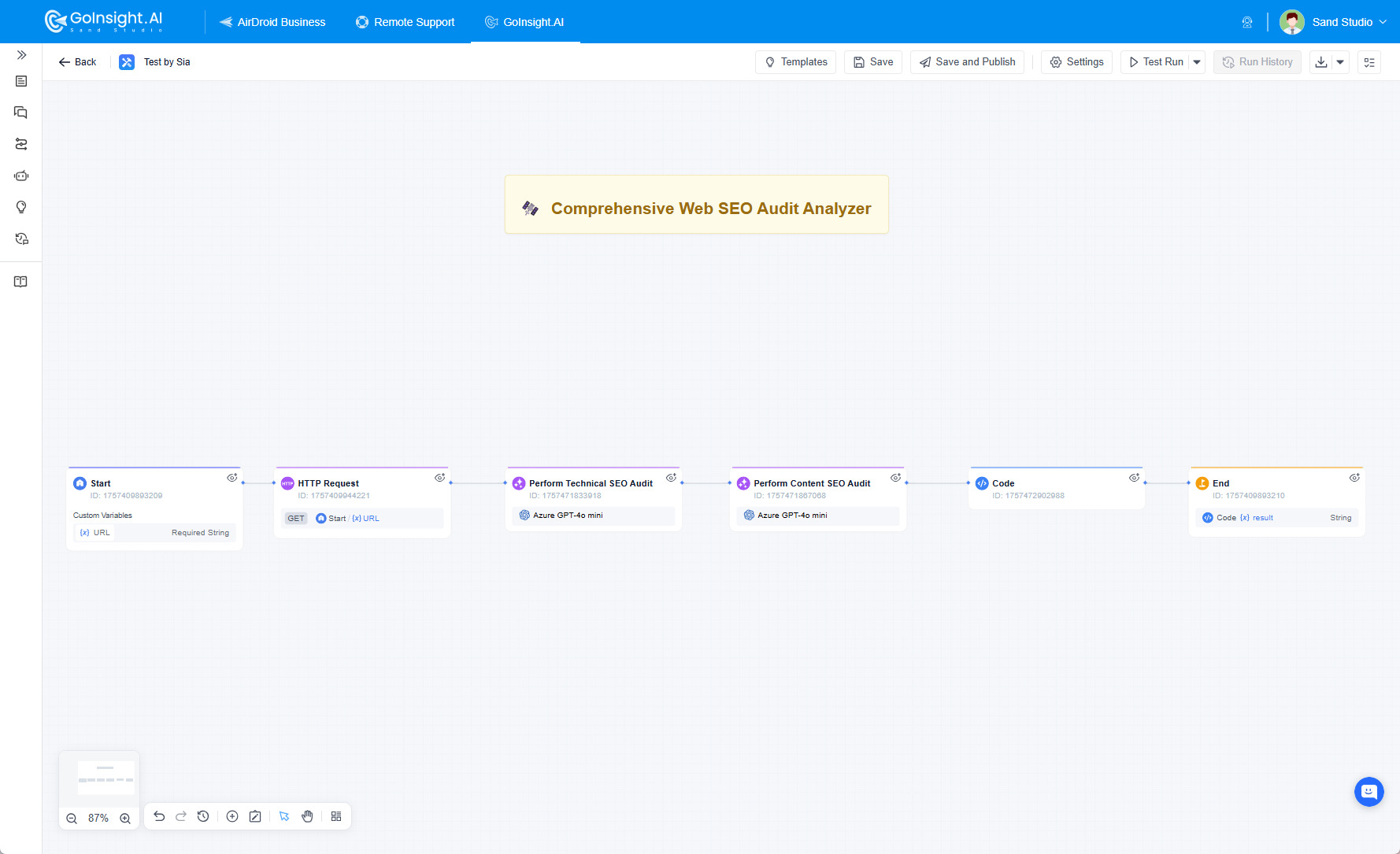
Enterprises can instantly deploy this template to establish a self-optimizing SEO analysis loop powered by agentic intelligence.
Conclusion
The shift from manual checks to AI-driven insights is reshaping SEO. Traditional audits struggle to keep pace with the speed and complexity of modern websites. AI agents deliver continuous analysis, automated fixes, and predictive optimization for SEO audits, reducing operational friction and accelerating results. For businesses, this means faster, smarter decisions and a significant competitive edge. Now is the time to act—embrace AI SEO audits and stay ahead of the curve.
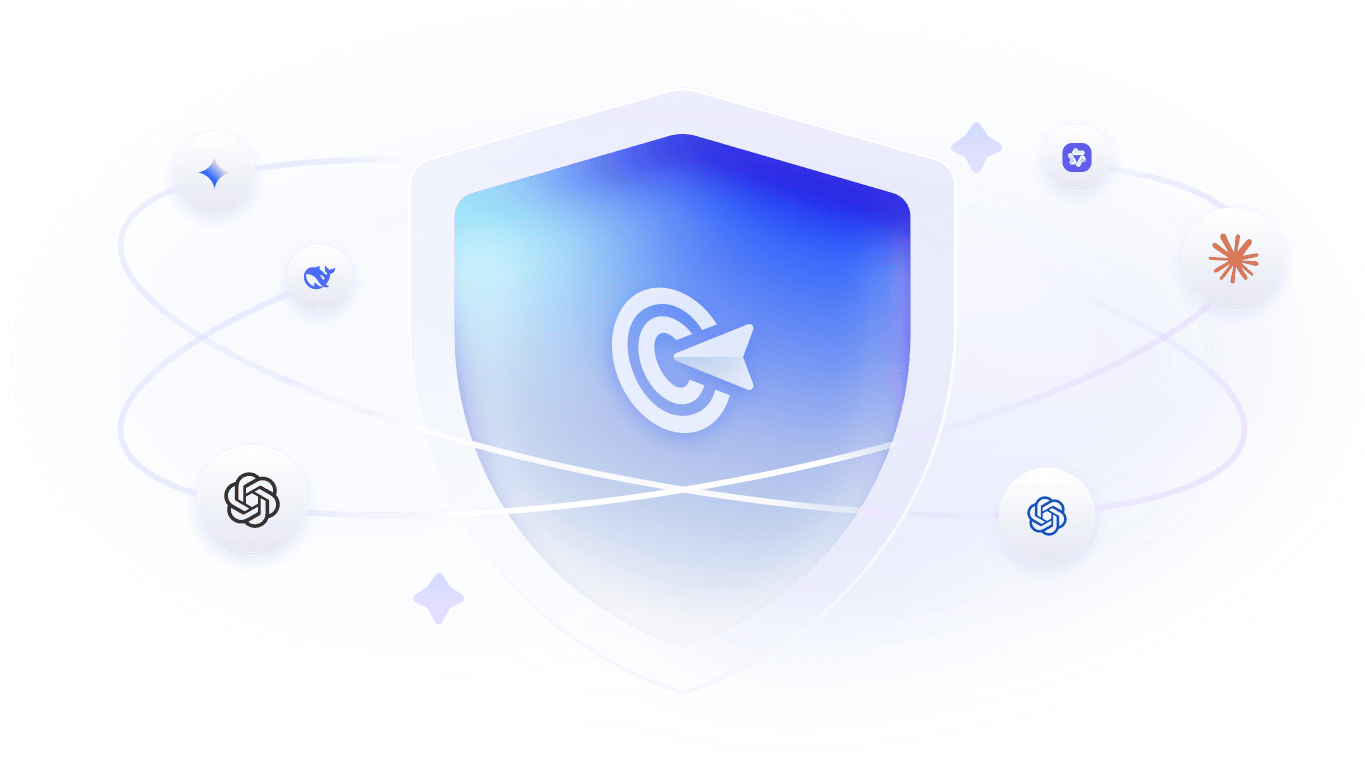





Leave a Reply.